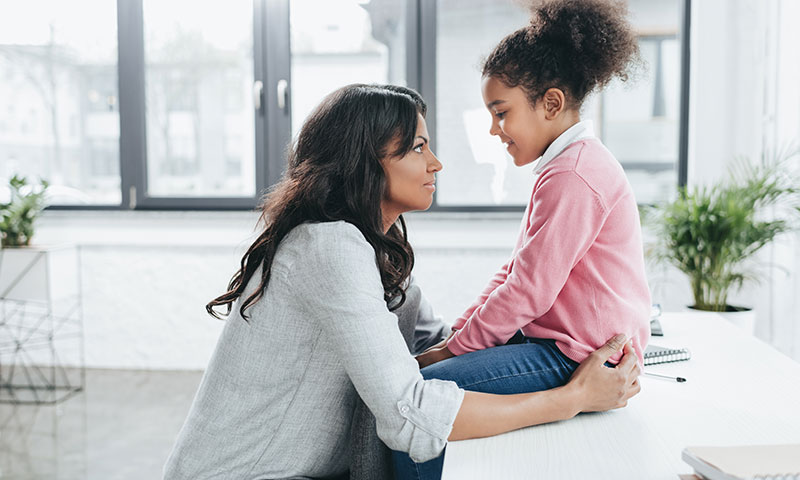Prodigy of Mindfulness

‘Mindfullness’ in children is an important aspect in social & emotional developmental stages & can be a useful tool for decreasing anxiety and promoting happiness.
FIRST OF ALL… WHAT DOES MINDFULNESS REALLY MEAN?
Mindfullness is the practice of living in the moment! It is the way you acknowledge your feelings and thoughts, but you don’t let them rule you.
Have you ever taught your child how to pay attention, how to calm down?
Well, it is very important to tell them to focus on being mindful
The benefits of Mindfullness:
a. Improves attention
b. Reduces stress
c. Increase ability to regulate emotions
d. Mindfullness is also widely considered as an effective treatment for adults, children, adolescents with aggression, ADHD and anxiety
Learning to be mindful is a great way to help you deal with the stress in your life, but it’s not normally the kind of thing you teach toddlers.
After all, being mindful needs the ability to sit still for a few minutes at a time, and which toddler can do that unless they are asleep?
Believe it or not, it is possible to teach your kids to be mindful.
Here are a few tips and tricks to help make your toddlers more mindful without losing your mind in the process!
FOCUS ON THEIR BREATHING:
A big part of Mindfullness is being able to take a deep breath and stay calm in any situation. Here’s what you can do –
a. For your little kids, you can include their favourite stuffed toy as their breathing buddy. Have your kids lie on the floor and set their favourite stuffed toy on their belly
b. As they breathe quietly for one minute, have them focus on the way their stuffed animal rises and falls
c. Encourage them to notice their breath by putting their fingers under their noses to feel the warmth
d. Through this they will know what breathing actually feels like when they are really in anger
AFFIRM THEIR EMOTIONS:
a. How many times have we said, “its okay,” “Stop crying,” “It’s not a big deal!” The anger, frustration or fear they feel is very real. Let them know it’s okay to be angry, or sad.
b. What we can focus on is what we do with that emotion, they live almost completely in the present moment!
c. Your child is angry, therefore you must ask your child, how is your body feel when you are angry?
d. Have them jump up and down in place, run in circles, have a frog jump race.
e. After a minute, have them sit down and feel their heartbeat. Help them to focus on their heartbeat. This will in turn help them to cultivate mindfulness.
FOCUS ON THEIR SENSES:
a. We all have five senses that help us experience the world. Try using them to give your child things to focus on.
b. Have them sit quietly and describe something they can see, touch, smell or hear.
c. This exercise helps them use the world around them to foster mindfulness.
d. By taking a moment to step back and highlight something they can experience with each of their senses, they can start to use their mindfulness skills in their daily life.
e. It is a good tool for dealing with situations that make you or your child anxious.
f. Focusing on things you can experience with your senses gives you a way to calm down your mind.
MEDITATE WITH THEM, CREATE A MINDFUL BEDTIME RITUAL:
a. Ask your child to close their eyes and tell them to bring attention to their toes, feet, legs, etc and concentrate.
Small prayer to be sung to children e.g. :
May I be safe, May I be happy, May I be strong, May I live with ease!
KEEP THIS IN MIND… Practice what you preach!|
a. This advice probably applies to everything in parenting. When we react with anger based emotions, children notice and imitate it.
b. They need to see us practicing mindfulness as well. If you do these exercises with your children, breathe with them and lay down on the floor with them.
c. If you can teach your kids to be mindful from a young age, even for a few minutes at a time, you are equipping them well to deal with real-world situations that may arise.
You may also read:





Truly informative blog. The Tips mentioned in this blog are very beneficial for parents and children as well.
Beautiful topic and beautifully written blog. Very useful tips which everyone can follow which will bring wonderful results without even trying.
The tips shared will surely be very helpful. Nice blog👌
Mindfulness develops the whole brain and helps children to understand their emotions and feelings Great blog.
Lovely write up. Enjoyed reading it. Great points shared
Learning to be mindful is a great way to help us deal with the stress in our life, and it is possible to teach our children to be mindful. Tricks mentioned in the blog will definitely help us to make our children More Mindful Without Losing our Mind In The Process!
Wonderful blog!
Thank you Jumpstart for this wonderful blog.
Lovely write up. Enjoyed reading it. Great points shared
Very well drafted blog with great tips. Very informative and helpful for everyone.
Thank you for sharing.
Wonderful blog… thanks for sharing